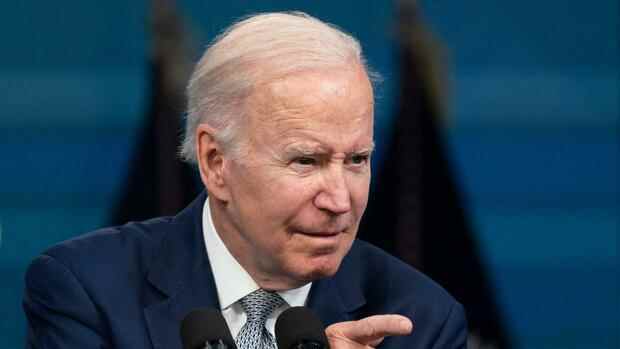The Asean states include Vietnam’s communists, Cambodia’s longtime authoritarian ruler and Thailand’s former coup leader. Obama therefore preferred to receive the guests from the Far East in a rather unofficial setting – at the Sunnylands estate in California, 3,500 kilometers from Washington.
Joe Biden is now showing fewer reservations: he wants to welcome the representatives of the group of states, which also includes Indonesia, Singapore, Vietnam and Malaysia, to the second special summit of this kind on Thursday and Friday in the American capital – only the military junta of Myanmar has been invited.
For the United States, it is a question of strengthening its relations with the region of 660 million inhabitants, which plays a strategically important role with its direct vicinity to China. However, the countries they are courting are skeptical as to whether the Americans even have the capacity for a serious engagement in view of the Ukraine war.
Top jobs of the day
Find the best jobs now and
be notified by email.
The question of how serious Biden is about the promised economic rapprochement is of particular interest. In October he announced that he would start a new cooperation offensive in Asia with the so-called Indo-Pacific Economic Framework (IPEF) – among other things with a view to trade facilitation and digital standards.
The Asean states also include Cambodia’s long-time authoritarian ruler.
(Photo: imago images/Xinhua)
The government in Washington has so far not given any details about the project. Derek J. Grossman, Indo-Pacific expert at the US think tank Rand Corporation, commented that he could hardly believe that IPEF had still not been officially presented just before the summit with the Asean countries.
China is expanding its influence
The initiative was actually intended to make up lost ground in the competition with China: With the decision by the USA under Donald Trump not to participate in the trans-Pacific trade agreement TPP (Trans-Pacific Partnership), the Americans had the chance of a closer economic relationship Abandoned ties with Asian economies.
The government in Beijing, on the other hand, succeeded in further strengthening its economic influence: at the beginning of the year, the RCEP free trade agreement, which connects China with the Asean countries, Japan, South Korea, Australia and New Zealand, came into force.
China is by far the most important trading partner for the ten Asean countries, which together form Asia’s third-largest economic area. It is also in the interests of the region to further diversify business relationships.
>>> Read here: Search for like-minded people: China courts partners in South Asia
“The Asean countries want the US to show a presence and counterbalance China’s overwhelming influence,” says Brian Harding, Southeast Asia expert at the conflict research institute USIP in Washington. “What they don’t want is to have to choose between the US and China.”
However, from the perspective of Southeast Asia, it is still not clear how Biden envisages the future relationship. “There are many details that we don’t know yet,” said Kao Kim Hourn, a senior official in Cambodia’s government, which currently holds the Asean presidency, of Biden’s IPEF plan. In view of the Ukraine war, delays are apparently expected: “We understand that many priorities are competing with each other on the global agenda of the USA.”
“We want our Asean friends to punish Russia”
Observers also see the restrictions that the US government has imposed on itself as a problem with the IPEF initiative: The initiative is apparently to be implemented by executive order, i.e. bypassing Congress: “As a result, the government is not expanding market access or other concessions that would require changes in US law,” reads an analysis by the Centers for Strategic and International Studies.
Biden, who wants to meet with the Asean leaders on Thursday for dinner and on Friday for a two-hour talk, leaves little lure to tie the region more closely to the West – as he wants to try in the Russia conflict, for example: ” We want our Asean friends to stand by us when it comes to isolating and punishing Russia,” US Secretary of State Antony Blinken’s adviser Derek Chollet said ahead of the meeting.
However, at the moment there is almost no willingness on the part of the group of states to side with the USA and the EU in the conflict. So far only Singapore has joined the sanctions of the West.
The remaining countries insist on their neutrality. Despite pressure from Washington, Indonesia – the current presidency of the G20 countries – insisted on inviting Russian President Vladimir Putin to the G20 summit in Bali in November. However, head of state Joko Widodo was persuaded to send an invitation to his counterpart in Ukraine, Volodymyr Zelenskiy.
More: The World After: How the Ukraine War Redistributed Power and Wealth
